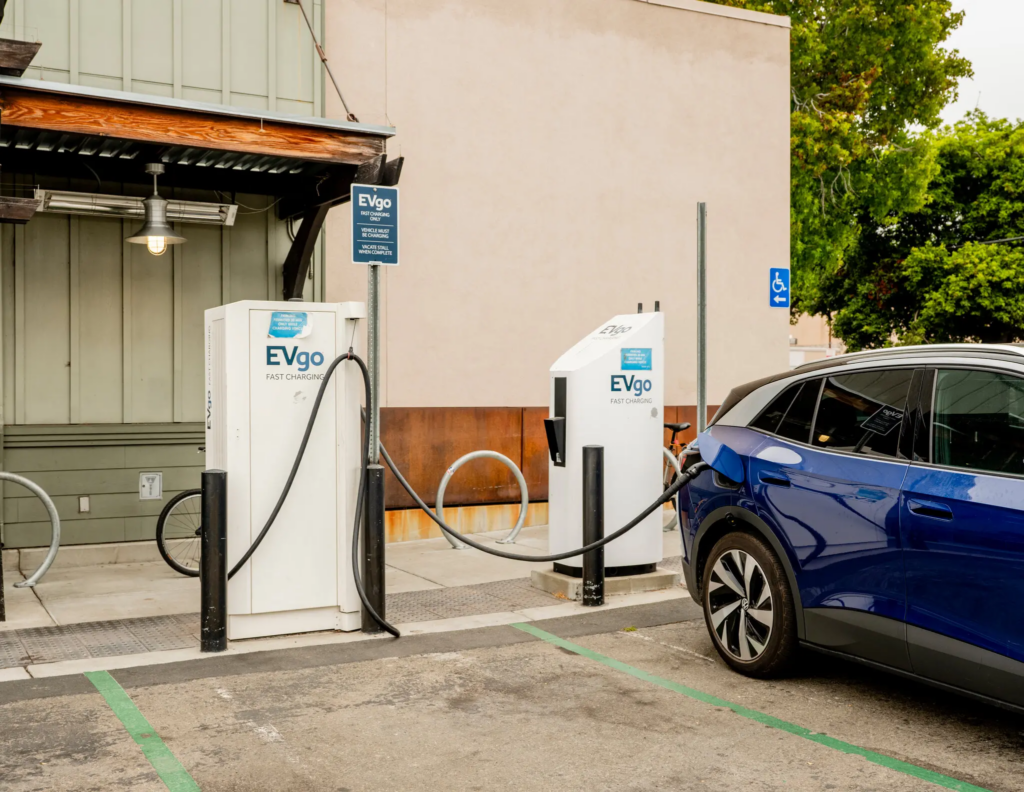“Ms. Barra, the chief executive of General Motors, had just agreed to follow Ford Motor in adopting the charging technology developed by Tesla, the carmaker led by Mr. Musk. The deals will allow G.M. and Ford customers to use some of Tesla’s fast chargers. Fear of not finding a charger is a main reason some people hesitate to buy electric cars, surveys show” (Ewing, 2023)
Since Tesla’s first passenger car hit the market in 2012, the company has been operating its own charging software and thousands of charging stations across the country. Tesla’s approach to the charging conundrum is unlike that of any other car manufacturer. There is a standard plug that every model uses that allows them to charge at any on the over 19,000 Tesla-owned charging spots across North America (Ewing, 2023). While Tesla most likely “loses money on charging in order to get people to buy its cars,” they make up for this loss with increased vehicle sales and control over the future of EV charging (Ewing, 2023). However, these negotiations signal a shift within Tesla, as they will be forfeiting sole control over this network.
“Ford and numerous charging companies and equipment suppliers have agreed to work with Tesla because they desperately need the company’s help. In addition to selling more electric cars in the United States than all other automakers put together, Tesla operates the country’s largest fast-charging network” (Ewing, 2023).
The movement towards a total adoption of Tesla’s charging infrastructure also signals the establishment of a set standard across the United States. In Europe, the Combined Charging System (C.C.S.) sets the standard, which many American companies adopted before these negotiations (Ewing, 2023). “The combined clout of Tesla, G.M. and Ford effectively compels operators of charging networks to install Tesla plugs and may effectively render the C.C.S. plug obsolete — at least in North America — in years to come” (Ewing, 2023). It’s unclear what this shift means for companies such as EVgo, who operate C.C.S. charging stations throughout the United States and have also struggled to keep up with charging software across vehicle manufacturers.

These negotiations signal a new wave of collaboration among automotive manufactures, but what does this mean for the consumers that have already spent thousands of dollars on an EV from manufactures like Ford and GM? Unfortunately, these consumers are stuck with the C.C.S. chargers already installed in their vehicles. “As the Tesla plug becomes dominant, people with cars designed to use the C.C.S. plug will become increasingly dependent on adapters that, for safety, are limited in how much voltage they can handle and will charge more slowly” (Ewing, 2023). Some market researchers feel that these changes will turn consumers away from purchasing EVs from manufacturers besides Tesla until their full integration into the existing Tesla system. This is completely understandable from the consumer perspective, it’s difficult to encourage individuals to spend money on technology that will soon become obsolete, but this ultimately will slow the purchase of EVs in the United States. As climate change becomes increasingly dire, it’s important that these manufactures commence these changes and reinvigorate the market.
References
Clifford, C. (2023). EVgo Charging station [Photograph]. The New York Times. https://static01.nyt.com/images/2023/06/27/multimedia/00tesla-charging2-print-ctpj/00tesla-charging-02-ctpj-superJumbo.jpg?quality=75&auto=webp
Electric cars charging at charging station outdoors at sunset [Photograph]. Adobe Stock. https://stock.adobe.com/images/electric-cars-charging-at-charging-station-outdoors-at-sunset/484699085?prev_url=detail
Ewing, J. (2023). Tesla May Have Already Won the Charging Wars. The New York Times. https://www.nytimes.com/2023/06/27/business/energy-environment/tesla-gm-ford-charging-electric-vehicles.html




